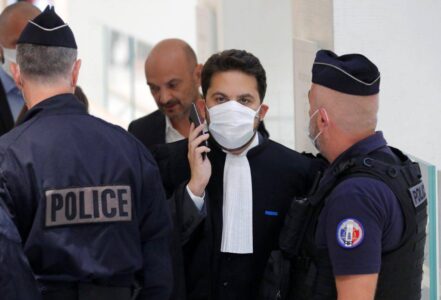
Charlie Hebdo terror suspect tells court he is paying price for dead terrorist links
The Charlie Hebdo trial has heard evidence from two of the accused while the lawyer of another has claimed his client is being subjected to unsustainable conditions.
The attacks in January 2015 on the office of satirical magazine Charlie Hebdo and a kosher supermarket took place over the course of two bloody days in the French capital, killing 17 people. Thirteen men and one woman are charged with aiding and abetting the three perpetrators – Cherif and Said Kouachi, and Amedy Coulibaly – in a trial expected to last two months.
At the start of Thursday’s hearing Abdellaziz Abbad, the lawyer for one of the accused, complained that his client was suffering from fatigue.
“Our clients arrive in the cell at midnight and are woken up around 5-5.30am,” he said. “You can’t last 50 days by sleeping four hours a night. It’s just not possible.”
Following this intervention the first of seven to take the stand on Thursday, Ali Riza Polat, made a statement declaring himself to be “innocent of the facts”.
During Mr Polat’s cross-examination he was frequently impassioned and portrayed himself as a petty criminal – but not an accomplice to murder.
Mr Polat converted to Islam in 2014 and told the court that he was “a believer”. But as well as praying five times every day he committed delinquent acts “on the side”.
“Today I pay for my friendship with Amedy [Coulibaly],” he said.
”We must not kill people, we must not kill innocent people,” he replied when asked for his feelings on the terror attacks.
The final accused of the morning was Will Prevost. Mr Prevost appeared calmer than his predecessor and gave an opening statement in which he offered his sympathies to the victims and their families.
Mr Prevost gave details of his upbringing and said he had a “normal childhood”. He did not complain about his period of incarceration leading up to the trial, although did mention that he changed prisons regularly.
He also told the court that he was an atheist and acknowledged that he met several of the accused in Grigny, a town in the southern suburbs of Paris. It was established that he met Coulibaly in La Grande Borne housing estate in the region, an area renowned for violence and crime.
Source: The National





